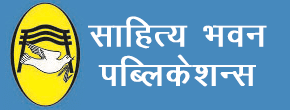The Banking Operations Book covers the whole syllabus of Undergraduate and Postgraduate courses of many universities including the University of Lucknow. The book is reader-friendly which explains the concept, utility and applications of banking services in our daily life and for the development of the national economy. The effort has been made to explain the changing scenario of the banking industry and how banking services can be availed at the doorstep of the account holder. The language of the book is very simple and is presented in a lucid way. The theory has been dealt exhaustively and explained in great detail.
The purpose of this book is to teach the students the basics of Banking Operations and also to give a brief idea of the Indian Financial System. The initial chapters of the book deal with the background of the Indian banking system beginning from the pre-independence phase to the post-independence phase and then covering the latest amendments and policy changes in the banking system. The regulatory system governing and regulating the banking system is also been covered in this book in a detailed manner.
A detailed review of the monetary policy of India is included in the book, explaining the role of Monetary Policy in Developing Economies and its role in the economic development of India. The book also includes theory on Indian Financial System, its evolution in India. It explains the Financial Market, Financial Institutions and Intermediaries.
A special feature of the book is that the book includes operational aspects of commercial banks, the ancillary services provided by the bank and also explaining the concept of the time value of money. The book also includes a chapter on E-banking and various E-banking services provided by banks.
In view of the pattern of examination question papers, a large number of MCQ and Very Short Questions with Answer have been included in the book.
The book best suit to B.Com, B.Com.(Hons.), BBA, BBA(International Business), BBA (Management Science), M.Com., MBA, MBA (International Business), Postgraduate Diploma in Banking courses of many Universities and its affiliated Colleges/Institutes.
Banking Operations Syllabus For B.Com Semester II of Lucknow University, Lucknow
Unit-I: Banking System in India, Monetary Policy: Concepts and Objectives, Basic concepts of Regulatory Environment for a commercial bank in India and their provisions: RBI Act: Chapter I, II, III; Banking Regulation Act: General Provisions, Management control, Loan and Advances; Deposit and Insurance Act: Objectives, SARFAESI Act: Methods of recovery of NPA’s and Money laundering: Procedure, Laws and Guidelines for anti-money laundering.
Unit-II: Operational Aspect of commercial banks in India, Relationship between Banker and customers, Types of the customer account, Cheque and its types, Endorsement, Dishonour, Rights and Liabilities of Paying and Collecting Banker, Time Value of money-calculation of interest on loan and deposits, EMIs.
Unit-III: Negotiable Instruments, Bills of Exchange and Promissory notes, Rights and liabilities of parties, Bills discounting and purchasing, Ancillary services of the Bankers. E-Banking.
Unit-IV: Employment of funds by Commercial Banks, Types of securities, mode of creating a charge, Bank guarantees, Base norms, Financial sector reforms in India.
Banking Operations Book Contents
- Indian Banking System [Pre-Independence Banking, Post-Independence Banking, Banking Regulation Act, 1949, Banking Companies Amendment Act, 1994, Changing Profile of India Banking, Efforts to Remove Regional Imbalance, Defects of Indian Banking System, Suggestions to Improve the Working of Indian Banks]
- Monetary Policy [Objectives of Monetary Policy, Exchange Rate Stability, Economic Growth, Instruments of Monetary Policy-Quantitative or General Credit Control, Qualitative or Selective Credit Control, Limitations of Monetary Policy in Under-Developed Countries, Role of Monetary Policy in Developing Economies Monetary Policy in India]
- Banking Regulatory Environment [Reserve Bank of India Act, 1934, Banking Regulation Act, State Bank of India Act,1955, Foreign Exchange Management Act, 1999, The Banking Ombudsman Scheme 2006, Consumer Protection Act 1986, Deposit and Insurance Act, Sarfaesi, The Legal Services Authorities Act, 1987, DRT, The Information Technology Act, 2000, Amendment to the Reserve Bank of India Act, 1934, Law of Limitation, Lenders Liability Act, Money Laundering, The Bankers’ Book Evidence Act, 1891]
- Operating Aspects of Commercial Banks [(A) Banker and customer relationship, (B) Banker as borrower, (C) Banker as a lender, (D) Ancillary Services of a Banker]
- Liabilities of Paying Bank and Collecting Bank [As Paying Banker, As Collecting Banker]
- Time Value of Money [Concept, Compounding, Future Value of Single System, Discounting, Application of Time Value of Money in Banking]
- Negotiable Instrument [Features of Negotiable Instrument, Classes of Negotiable Instrument, Promissory Note, Bill of Exchange, Comparison Between Promissory Note and Bill of Exchange, Cheques, Difference Between Bill of Exchange and Cheque]
- E-Banking [On line Banking, Mobile Banking, E-payments, ATM-Different types of ATM, Different types of Cards, RTGS, NEFT]
- Employment of Funds by Commercial Banks [Lending Activity, Investment in other Avenues, Forms of advances-Fund Based and
Non-Fund Based] - Securities [Types of Securities, General Principal of Secured Advances, Price Stability, Charging The Security, Advances against Document of Title to Goods, Risk Increase of Advances Against Document, Important Document of Title to Goods, Advances Against Stock Exchange Securities, Advantage of Stock Exchanged Security, Advances Against Life Insurance Policies, Precautions to be taken by the Banker, Advances Against Book Debts Advances Against Supply Bills, Advances Against Gold Ornaments and Jewellery]
- Modes of Changing the Securities [Lien, Pledge, Mortgage, Discharge of Parties From Liabilities, ‘Noting and Protesting, Holder]
- Contract of Guarantee [Definition, Essential Features of Contract of Guarantee, Kinds of Guarantee, Rights of Surety]
- Basel Norms [Base-I Accord, Definition, Capital Adequacy Ratio, Basel-II (Revised International Capital Framework, Definition, Basel-III Regime: Enhanced Risk Management, India and the Basel Norms]
- Financial Sector Reforms [Banking Reforms and Capital Market Reforms]
- Indian Financial System [Evolution of Financial System in India, Financial Market, Financial Institutions and Intermediaries, Development Financial Institutions, Insurance Companies, Non-Banking Financial Companies, Regulatory Institutions, Functions of Financial Institutions, Financial Instruments/Products, Instruments of Money Market, Instruments of Capital Market, Financial Services, Objectives of Financial System, Functions of Financial System, Role of Financial System in Economic Development]
- Multiple Choice Questions with Answer
- Very Short Questions with Answer
















![सूक्ष्म अर्थशास्त्र (Micro Economics) [for Ranchi University]](https://i0.wp.com/sahityabhawanpublications.com/wp-content/uploads/2017/10/2760-Micro-Economics.jpg?resize=245%2C300&ssl=1)

Reviews
There are no reviews yet.